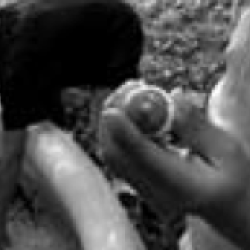Source Institutions
Source Institutions
Add to list Go to activity
Activity link broken? See if it's at the internet archive

In this water activity, learners test which objects float and which sink. Learners discover that objects behave differently in water. Learners are also introduced to the idea of "predicting" and record their predictions and observations on a chart. This activity is part of the curriculum Explore Water, related to Peep and the Big Wide World, a preschool science series on public television. The activity starts on page 41 of the PDF.
- 5 to 10 minutes
- 30 to 45 minutes
- $5 - $10 per group of students
- Ages 4 - 6
- Activity, Lesson/Lesson Plan
- English, Spanish
Quick Guide
Materials List (per group of students)
- Water table, large tub, or plastic wading pool (if outside)
- Two plastic bins labeled with picture signs: “Float” and “Sink”
- Various objects that float or sink (for example: rubber bands, sponges, pencils, plastic bottles with tops, wooden blocks, plastic straws, craft sticks, small plastic toys)
Subjects
-
Earth and Space Science
-
Earth Structure
- Oceans and Water
-
Earth Structure
-
Mathematics
-
Data Analysis and Probability
- Data Analysis
- Data Collection
-
Data Analysis and Probability
-
Physical Sciences
-
States of Matter
- Liquids
-
Structure and Properties of Matter
- Volume and Density
-
States of Matter
-
The Nature of Science
-
The Scientific Process
- About Inquiry
- Asking Questions
- Conducting Investigations
- Gathering Data
- Formulating Explanations
- Communicating Results
-
The Scientific Process
Audience
To use this activity, learners need to:
- see
- touch
Learning styles supported:
- Involves hands-on or lab activities
Other
Components that are part of this resource:
Access Rights:
- Free access
By:
Source Collection
- PEEP and the Big Wide World
Rights:
- All rights reserved, WGBH, 2005
Funding Source:
- National Science Foundation
